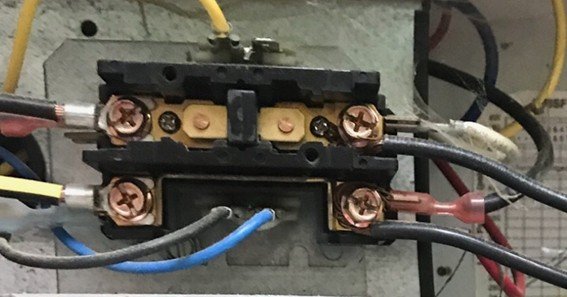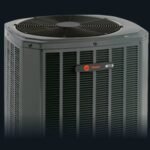What Is a Contactor in an AC Unit?
A contactor for an AC unit is an electrically controlled switch that manages the flow of electricity to the compressor and condenser fan motor. When the thermostat signals the need for cooling, the contactor engages, allowing high-voltage current to power these components. This mechanism ensures that the AC unit operates only when necessary, contributing to energy efficiency and system longevity.
Signs of a Faulty Contactor
Over time, contactors can wear out or become damaged, leading to various operational issues. Common indicators of a failing contactor include:
- AC Unit Not Starting: A defective contactor may prevent the compressor and fan from receiving power.
- Unusual Noises: Buzzing or humming sounds can indicate electrical arcing or coil issues.
- Stuck Contacts: If the contacts weld together, the AC may run continuously, even when the thermostat is off.
- Visible Damage: Burn marks or pitting on the contactor’s surface suggest wear and potential failure.
How to Replace an AC Contactor
Replacing a faulty contactor is a task that can be undertaken with proper precautions:
- Turn Off Power: Ensure the AC unit is disconnected from the power source to prevent electrical shock.
- Access the Contactor: Open the service panel on the outdoor unit to locate the contactor.
- Document Wiring: Take a photo or label wires to ensure correct reconnection.
- Remove the Old Contactor: Unscrew and disconnect the faulty contactor.
- Install the New Contactor: Connect wires to the new contactor, matching the original configuration.
- Secure and Test: Fasten the contactor in place, restore power, and test the AC unit for proper operation.
*Note: Always consult the manufacturer’s guidelines or a professional technician when replacing electrical components.*
FAQ
1. What does a contactor do in an AC unit?
It acts as a switch that controls the flow of electricity to the compressor and condenser fan motor, turning them on or off based on thermostat signals.
2. How can I tell if my contactor is bad?
Symptoms include the AC not starting, unusual noises, continuous operation, or visible damage to the contactor.
3. Is it safe to replace a contactor myself?
If you have electrical experience and follow safety protocols, it can be done. However, consulting a professional is recommended.
4. How much does a replacement contactor cost?
Prices vary, but contactors typically range from $15 to $50, depending on specifications.
5. Can a faulty contactor damage my AC unit?
Yes, prolonged issues can lead to compressor damage or increased energy consumption.
Understanding the role and maintenance of the contactor for an AC unit is essential for ensuring efficient and reliable air conditioning performance. Regular inspections and timely replacements can prevent system failures and extend the lifespan of your AC unit.










